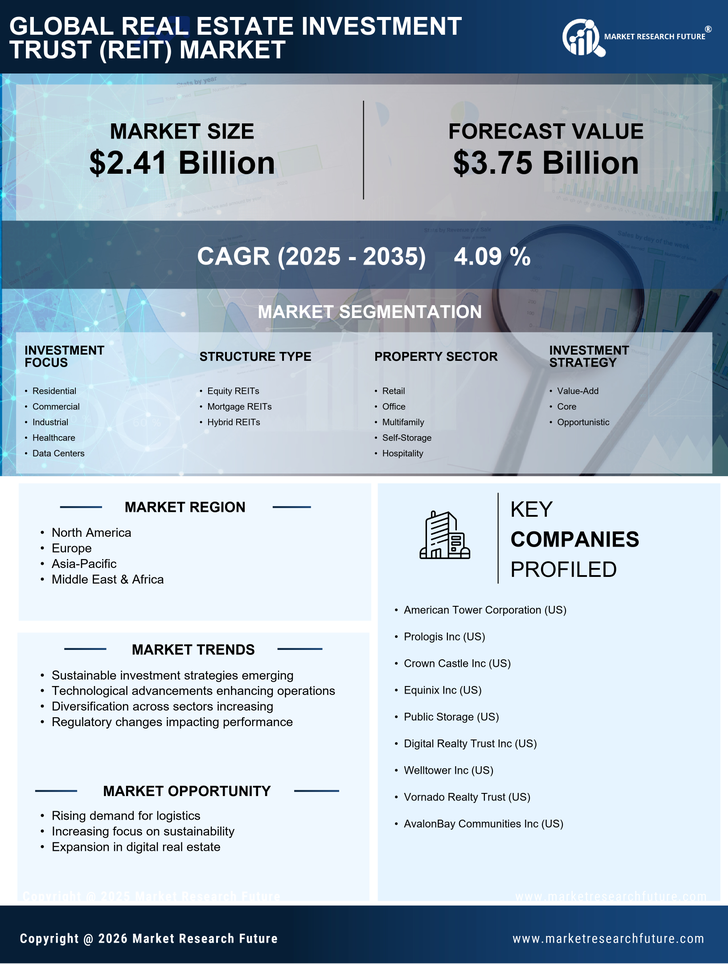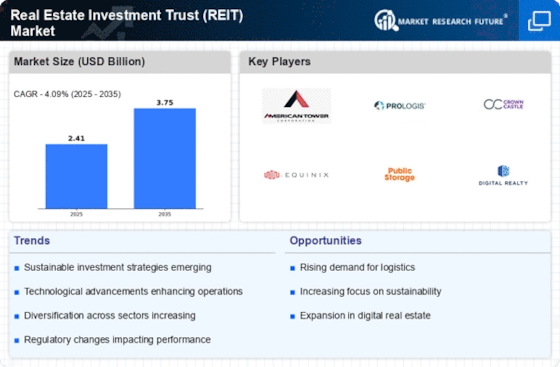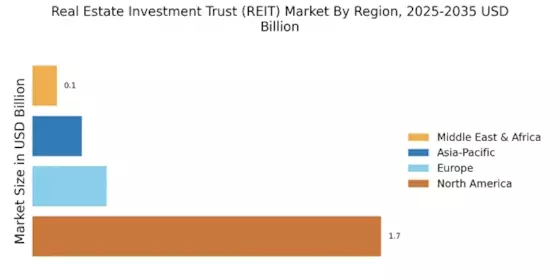Interest Rate Environment
The interest rate environment plays a crucial role in shaping the Real Estate Investment Trust Market (REIT) Market. Typically, lower interest rates reduce borrowing costs, making it more attractive for REITs to finance acquisitions and developments. Conversely, rising interest rates can lead to increased capital costs, potentially dampening REIT performance. As of October 2025, the Federal Reserve's monetary policy decisions are closely monitored, as they can influence investor sentiment and capital flows into the REIT sector. A stable or declining interest rate environment may encourage investment in REITs, as they often provide attractive yields compared to traditional fixed-income securities.
Economic Growth and Urbanization
The Real Estate Investment Trust Market (REIT) Market is significantly influenced by economic growth and urbanization trends. As economies expand, there is an increased demand for residential and commercial properties, which in turn drives the performance of REITs. Urbanization leads to higher population densities in cities, necessitating more housing and commercial spaces. According to recent data, urban areas are expected to house nearly 68% of the world's population by 2050, creating substantial opportunities for REITs. This trend suggests that REITs focusing on urban properties may experience enhanced growth potential, as they cater to the evolving needs of urban dwellers and businesses alike.
Regulatory Framework and Tax Incentives
The regulatory framework and tax incentives surrounding the Real Estate Investment Trust Market (REIT) Market are pivotal in determining its attractiveness to investors. Favorable tax treatment, such as the requirement for REITs to distribute at least 90% of their taxable income as dividends, enhances their appeal. Additionally, various jurisdictions offer incentives to promote real estate investment, which can lead to increased capital inflows into the sector. As governments seek to stimulate economic growth, the introduction of supportive policies may further bolster the performance of REITs, making them a more appealing investment option for both institutional and retail investors.
Technological Advancements in Real Estate
Technological advancements are reshaping the Real Estate Investment Trust Market (REIT) Market by enhancing operational efficiencies and improving tenant experiences. Innovations such as property management software, virtual tours, and smart building technologies are becoming increasingly prevalent. These technologies not only streamline operations but also attract tenants seeking modern amenities. As of October 2025, REITs that effectively leverage technology may gain a competitive edge, potentially leading to higher occupancy rates and rental income. Furthermore, the integration of data analytics allows REITs to make informed investment decisions, optimizing their portfolios in response to market trends.
Demographic Shifts and Consumer Preferences
Demographic shifts and evolving consumer preferences are critical drivers of the Real Estate Investment Trust Market (REIT) Market. As millennials and Generation Z enter the housing market, their preferences for urban living, sustainability, and mixed-use developments are influencing real estate trends. This demographic transition suggests that REITs focusing on properties that align with these preferences may experience enhanced demand. Additionally, the aging population is driving the need for senior housing and healthcare facilities, creating new opportunities for specialized REITs. Understanding these demographic trends is essential for REITs to position themselves effectively in a competitive market.


















